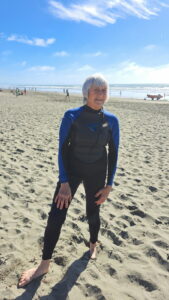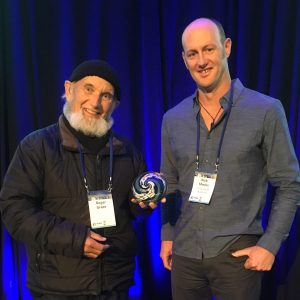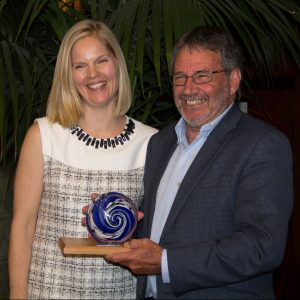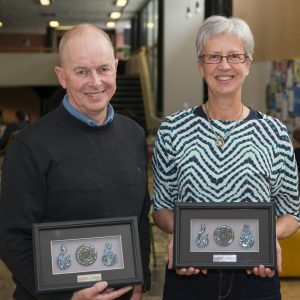2023
Prof. Ashley A Rowden
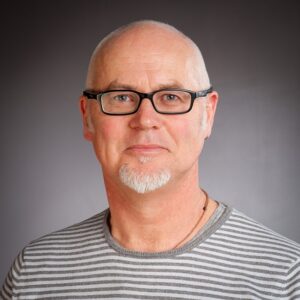
In 2023, the John Morton Medal was presented to Professor Ashley Rowden for his ground-breaking research on conservation of deep-sea ecosystems in the face of multiple anthropogenic impacts such as bottom fishing, deep-sea mining and climate change.
Prof Rowden has been instrumental in defining and identifying Vulnerable Marine Ecosystems (VMEs). He was key in developing, adopting and implementing the deep-water imagery methods, now considered the gold-standard approach for identifying and documenting the occurrences and distribution of VMEs. Prof Rowden regularly presents seminars for students, government officials and stakeholders as well as contributing to expert panels for conferences and the public. He is widely sought after to present on the deep-sea ecosystems and their conservation because of his personable nature and engaging presentation style.
Prof Rowden uplifts early career researchers (ECRs) by providing them the opportunity to present to government officials and stakeholders, and acts as a guide, ensuring they are properly supported and encouraged to communicate science clearly and effectively (building capability and confidence in ECRs within NZ). He has been a mentor to many researchers across all career stages, and in doing so, has had a long-lasting positive effect on marine sciences in New Zealand.
2021
Assoc. Prof. Rochelle Constantine
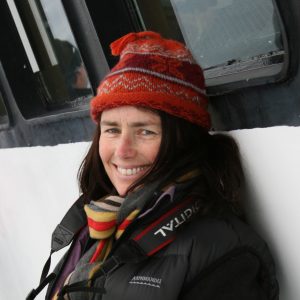
In 2021, the John Morton Medal was presented to Associate Professor Rochelle Constantine for her dedication to the conservation of large marine organisms in New Zealand. She has been an active researcher and adviser on critically endangered Māui dolphins, as well Hector’s dolphins, and contributes research on a wide range of other marine mammals, sharks, and seabirds.
Assoc. Prof. Constantine is perhaps best known for intervening to stop the ongoing mortalities of Bryde’s whales from ship strikes in the Hauraki Gulf. This small resident population of surface-dwelling whales was under threat from the high number of deaths caused by ships coming and going to the Port of Auckland. Assoc. Prof. Constantine helped to rigorously document the problem and then led the process to find and implement a solution. Her practical and collaborative approach to the problem resulted in an effective solution that has been wholly voluntarily adopted by the commercial shipping interests. Achieving this result rapidly without regulatory intervention or acrimony was due in a large part to Assoc. Prof. Constantine’s negotiation skills and pragmatic approach.
Assoc. Prof. Constantine is a strong believer in the value of an informed public, regularly presenting seminars and contributing to expert panels for community events. She is widely sought after for public events because of her positive and engaging style. She has also been recognised as being instrumental in building a bridge between science and Mātauranga Māori particularly with her work on the humpback whales and the New Zealand Cetacean Tissue Archive.
2019
Wade Doak
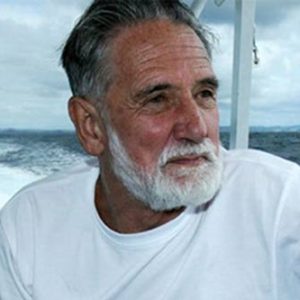
Wade Doak, QSM, was the 2019 recipient of the NZMSS John Morton Medal.
Wade Doak was one of a small group that pioneered the use of SCUBA in New Zealand. He worked tirelessly in the 1960s and 70s to raise awareness for the unique marine biodiversity of the Poor Knights Islands and the need for protection of its underwater environment. Through Wade’s efforts, including getting international recognition, the Poor Knights Marine Reserve was eventually established in the 1970s.
Wade’s work showcasing the Poor Knights Islands’ unique marine biodiversity provided the platform for a tranche of marine scientists to study the marine environment there. His books, “Beneath New Zealand Seas”, published in 1971; and “Fishes of the New Zealand Region (published 1972), were important resources for researchers and students studying fishes at the Poor Knights Islands and elsewhere in Northland, at the time. Many of these researchers and students went on to carry out further research on the marine environment of the Poor Knights and Northland, themselves writing books, publishing scientific papers, and producing reports for government agencies about the marine life in this region.
Over the decades, Wade has championed marine reserves, calling them “wet libraries”.
With his wife Jan, he studied dolphin behavior and communication in Northland, writing books and articles about their findings.
He also spent decades raising awareness of the vital role that mangroves play in our coastal environment, using the mangroves near his home in Matapouri to illustrate their beauty and significance. He was also an accomplished underwater photographer with many of his photographs featuring in books he has authored/co-authored.
Sadly, Wade passed away recently and the NZMSS extends their condolences to Wade’s wife Jan and family.
At Wade’s request, the money for his award went to funding four rangatahi from PARA KORE KI TĀMAKI to attend the Experiencing Marine Reserve

